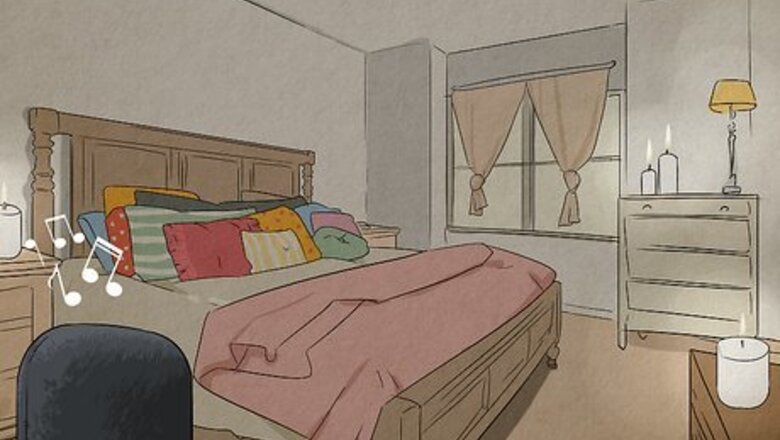
views
Working Through the Problem

Set a relaxed atmosphere. This is especially important if you’ve only kissed once. Was there something about the situation that might have meant the two of you didn’t bring your best game? This can be the case if the two of you were drunk, short on time or in a particularly awkward situation. Next time the two of you kiss, prepare beforehand. Make sure the two of you are comfortable, like on a cozy couch or a bed. Dim the lights to set the right atmosphere. Light candles and play romantic music.

Take the lead. Next time you kiss your partner, be proactive and drop hints about how you like being kissed. This is really important early, as it can prevent bad habits from developing. Make your kissing style known, and hopefully your partner will replicate it. If your partner doesn’t have as much experience as you, this can really help them develop their kissing ability.

Teach them a fun lesson. You can turn a potentially uncomfortable conversation into a playful demonstration. Focus on specific kissing styles you’d like your partner to emulate. Outline them verbally, then demonstrate. Open by telling your partner: “This is the kind of kissing I like” and demonstrate. An example of a specific thing you can try and correct would go like this. Say: “This is how I like using my tongue.” and demonstrate. For example, if you prefer to be caressed a certain way while kissed, demonstrate this on your partner.
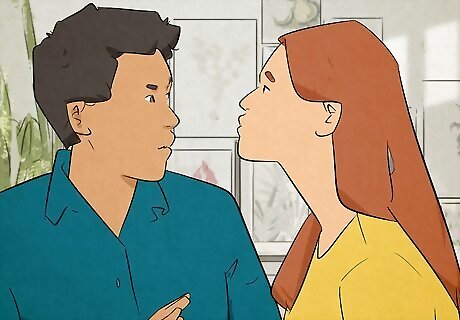
Use the three strikes method. If there’s something specific your partner does that bothers you, use this method to bring it to light. The first time you tell them you don’t like something, this is the first strike. If you have to go through this process two more times, that’s two more strikes. If you get to strike three, it’s time to pull away and talk about what’s going on. For example, if your partner uses too much tongue, pull away, say “This is how I prefer to be kissed” as your first strike, then resume.
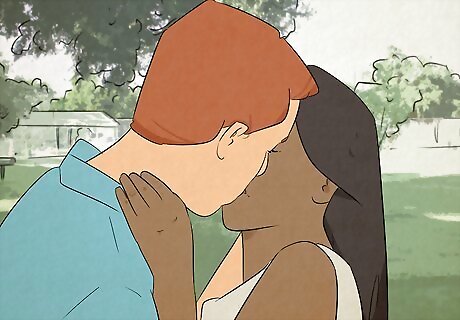
Practice frequently. The best way to make sure you both get the best out of any kissing venture is to actively practice. Set some time aside during each date specifically for making out with your partner. This will give you plenty of time to drop hints, and the practice might just help your partner shake some of the habits you’re not a fan of.
Fixing Specific Issues
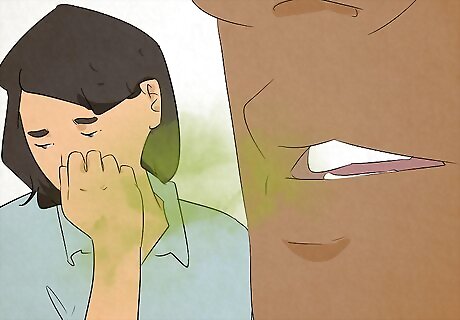
Figure out exactly what you don’t like. It’s important not to stop at “they’re a bad kisser” if you’re hoping to solve the problem. Think of specific things your partner is doing that might bother you, so you can fix them. There are a few things that can go wrong in a kiss. Too much teeth. Teeth banging together can definitely be a turn-off. Too much saliva. The last thing you want to say about a kiss is it’s slobbery. Bad breath. Too much or too little tongue.
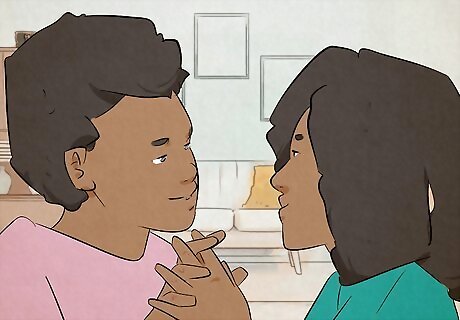
Redirect wandering hands. You might need to do this because you’re just not ready for that kind of contact, or your partner’s hands are less than gentle. Simply grab the hand(s) and redirect them towards a spot you’re comfortable with. For instance, you can take your partner’s hand to your waist, or maybe up to your face. After redirecting their hands you can let them know you enjoy being caressed there.
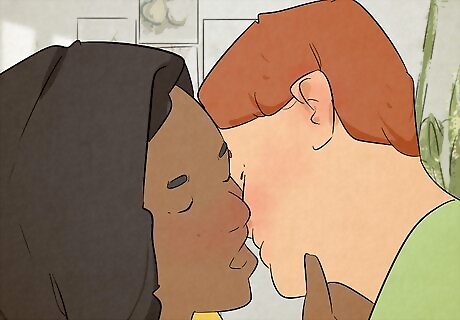
Show them how to use less teeth. Bumping teeth usually happens because the two of you are very eager. There’s nothing wrong with that! But unless bumping teeth is a turn on for you, you might want to slow down just a tad. If your partner doesn’t take the hint, you can take your partner’s head in your hands and gently tell them to slow down.

Stop them from slobbering. Too much saliva can happen when there’s too much tongue action and not enough lip movement. Try focusing on kissing their lips gently, toning things down a bit. If they follow your lead, you should be dealing with much less slobber. If they don’t follow your lead, try pulling away a bit. Usually that’s enough of a sign to slow things down.
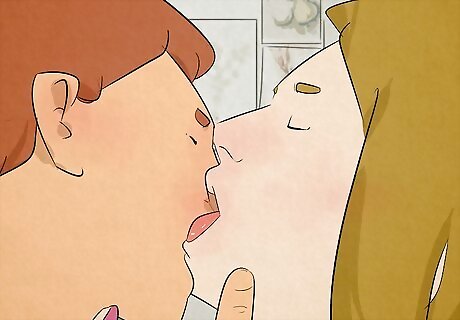
Control their wild tongue. Keep in mind that the amount of tongue that is acceptable in a kiss is very subjective. If your partner’s tongue isn’t doing too much, you’ll have to take the lead. Make sure your tongue has the first move; they’ll follow along. If the problem is their tongue going too wild, you have a couple of options. The first is to pull away noticeably. They’ll either understand and slow down, or follow and keep their intensity. If they do the latter, you can stop, and gently tell them to slow down.
Talking about It

Ask your partner what they like. If you haven’t been able to change your partner’s ways by dropping hints, you may need to talk to them about what they prefer. You’re not the only one involved in this kissing thing; your partner may just like things a bit differently than what you’re used to. Here are a couple things you can ask: ”Do you like the way I use my tongue?” You might find out that your expectations don’t exactly match up. ”Is there something you wish I was doing?” While you might be doing everything right, there might be a little extra your partner would like. ”Is there anything I do while we kiss that you don’t like?” This question is a bit more open ended, but opens the floor for honesty.
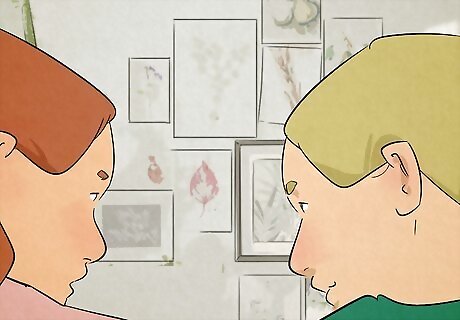
Go over what you like. Your partner can’t guess what you like. Dropping hints is subtle and won’t hurt anyone’s feelings, but sometimes it’s just too subtle. If you haven’t been able to change your partner’s ways, you might need to be more overt about your wishes. Be very specific, for instance mention exactly how passionate you expect kissing to be; otherwise it can feel rather forceful. It’s important to approach this kind of sensitive topic with tact. Don’t be overly critical, and try to reinforce your partner’s positive behaviors.

Look at ultimatum options. In the worst-case scenario, you have two choices: lower your standards or break up with the bad kisser. If the person is wonderful in all other respects and if kissing just isn't that important to you, just live with it. If you really need a good kisser, you have to end the relationship. If you try to communicate your needs early and the person still doesn't adapt, they probably won't be responsive to your needs in other areas either and won't make a good long-term partner for you anyway. It's hard to break up with someone, but remember that you'll be better off and, hopefully, that person will also finally take the hint and become a better partner for someone in the future.

















Comments
0 comment